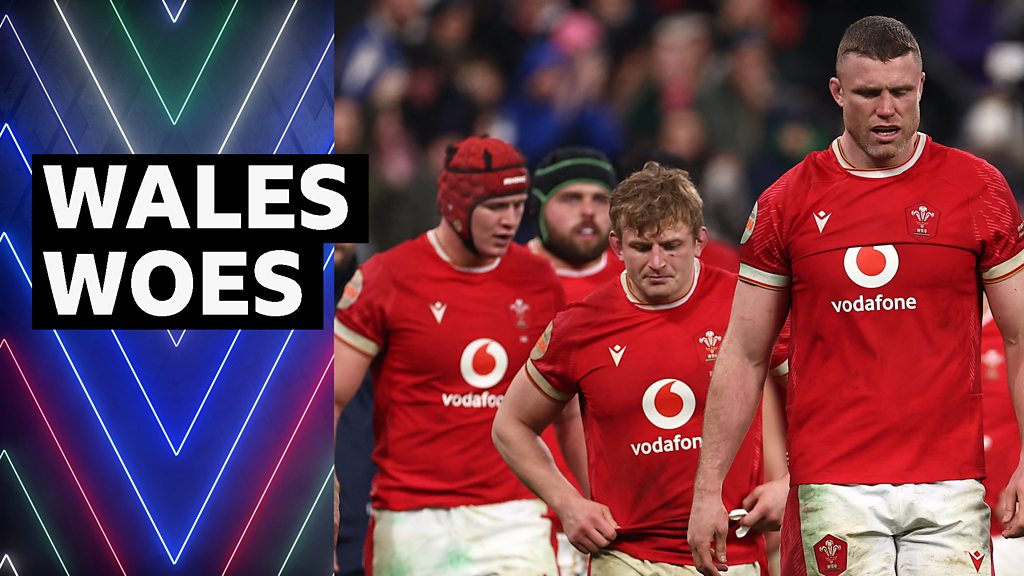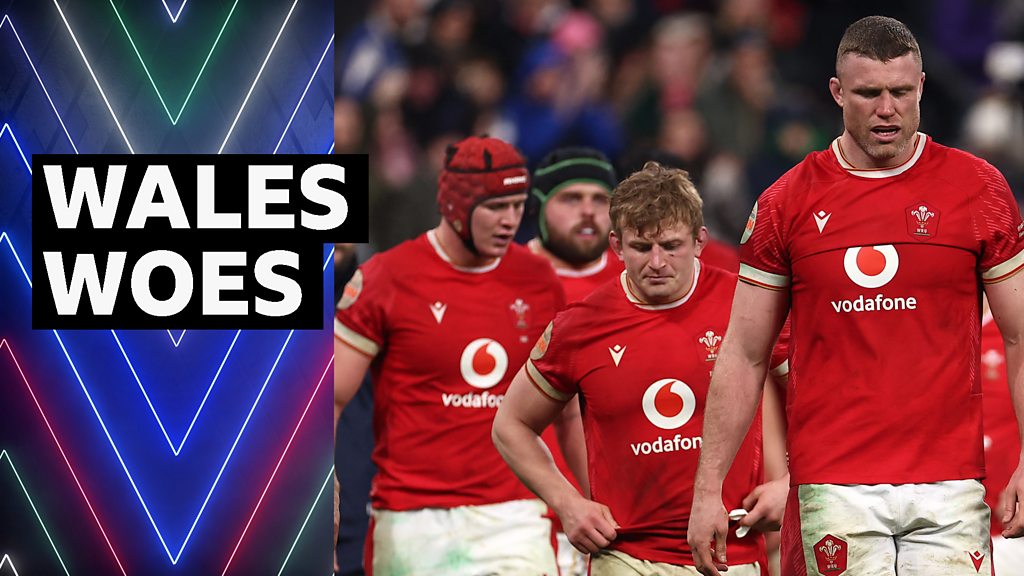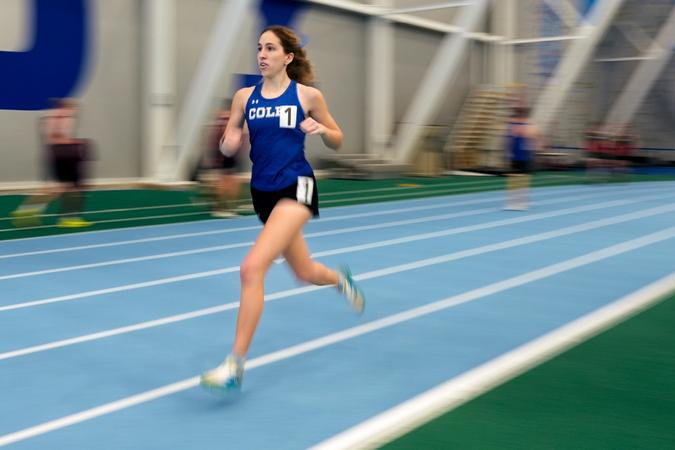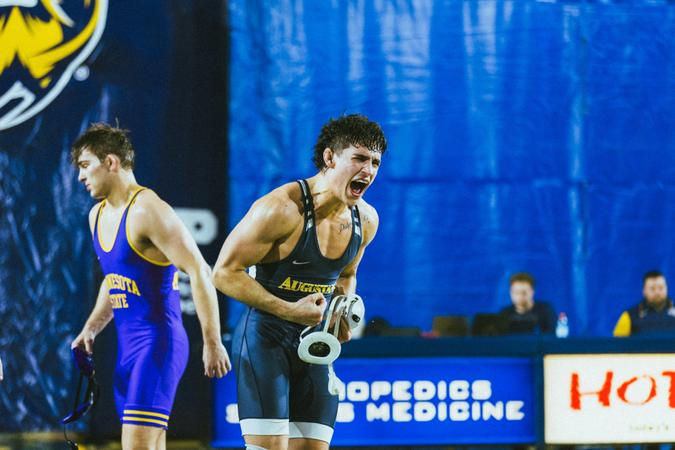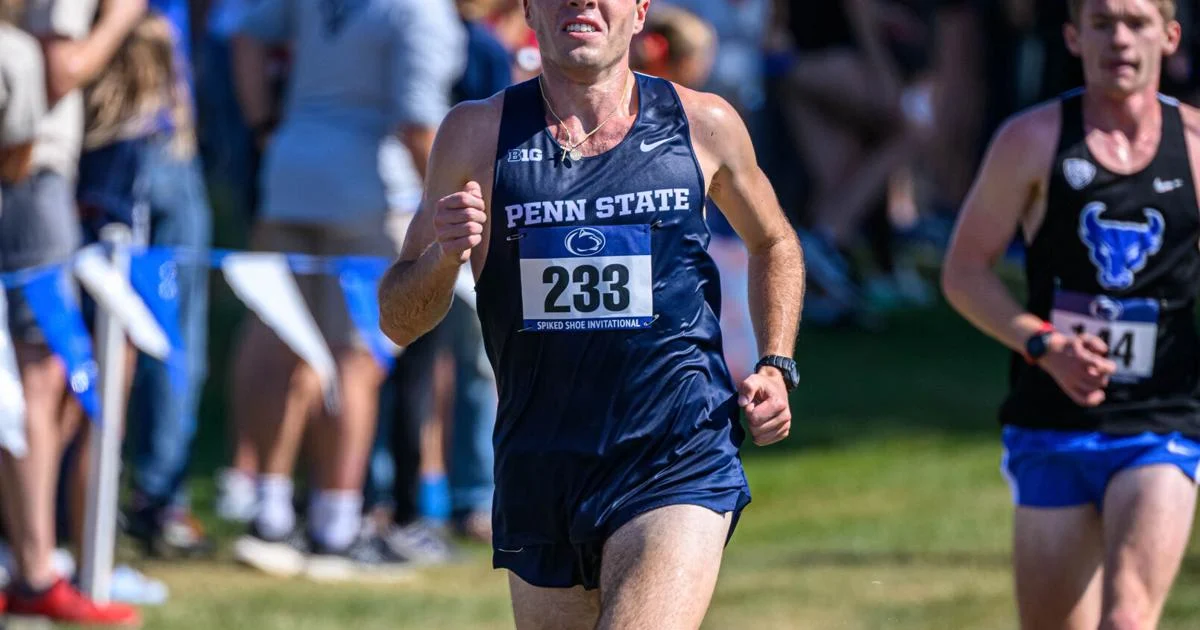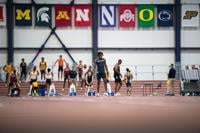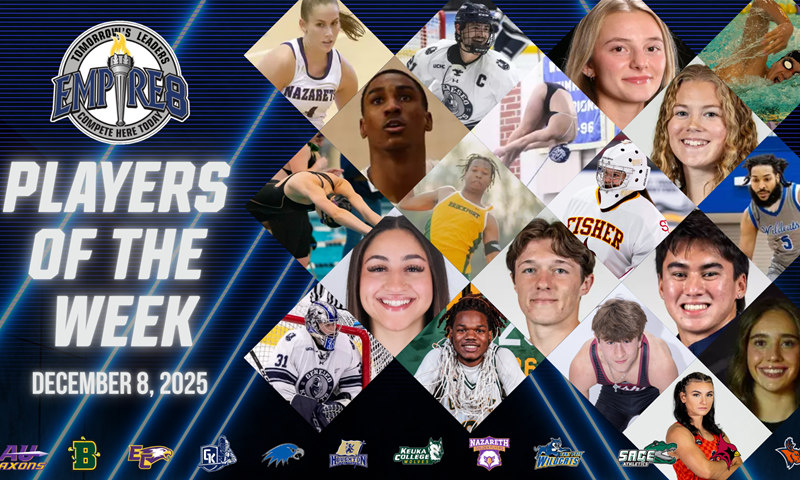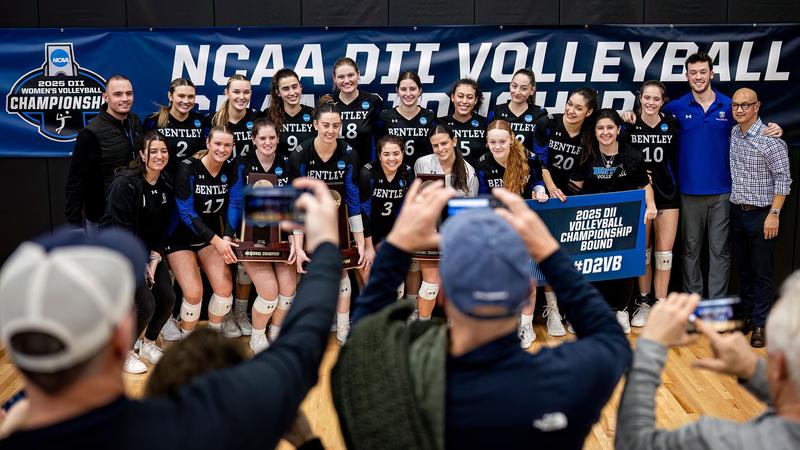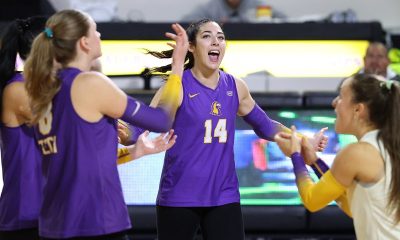With snow on the ground outside each of the three facilities, Penn State kicked off its 2025-26 indoor season in Boston, Philadelphia and Lewisburg, Pennsylvania.
The Nittany Lions competed at the Penn Opener, Sharon Colyear-Danville Season Opener and Bison Opener, where they earned 12 top finishes across the three meets.
Penn Opener
Senior multi-eventer Maddie Pitts got things going on Friday at the Penn Opener, where she won the pentathlon with a meet record score of 4,132.
Pitts broke the meet record in the 60-meter hurdles, long jump and shot put — which was also a personal best — as she opened the season right where she left off last year.
Sophomore Hannah Riolo continued the strong performance momentum on Saturday as she jumped 1.75m for second place in the women’s high jump. Riolo was followed by Katie Becker and Gwen Cudmore in fifth and sixth place, who jumped 1.72m and 1.62m, respectively.
In the women’s long jump, Lizzie Schreiber jumped her way into first place with a personal-best performance of 5.98m.
Schreiber finished the Penn Opener in the women’s triple jump, where she finished in second place with a jump of 12.74m.
Sharon Colyear-Danville Season Opener
Sophomore Tayissa Buchanan opened the Sharon Colyear-Danville Season Opener with a bang, running the second-fastest 800-meter in Penn State history.
Buchanan broke her personal best by nearly five seconds as she ran a 2:02.67 for second place.
In the women’s 3,000 meters, sophomore Ada Rand also etched herself into the No. 2 spot in Penn State history. Rand ran a 9:06.18 to finish fourth at the invite, followed by Sarah Pickering in 9:29.65 for 25th place.
Senior Justin Healey earned a personal best in the men’s 3,000m, running a time of 8:05.23 to finish 36th out of 124 runners.
The women’s 5,000 meters saw a pair of personal bests for Penn State, as Charlotte Costich took over a minute off her time to earn the No. 3 mark in school history.
Costich finished in 22nd place with a time of 15:49.68, followed by Claire Daniels in 65th with a time of 16:13.69.
Nick Sloff came out of the gates in the men’s 5000m in similar fashion, earning the No. 2 spot in school history with a 13:45.36 for 38th place.
Bison Opener
Freshman Lucas Band bursted onto the scene in the men’s 60-meter hurdles, where he finished first in both the prelims and the finals with a time of 8.17 seconds.
Addyson White shared similar consistency in the women’s 60m hurdles, finishing second in both races with a time of 8.88 seconds.
Sophomore Scotty Coffi showed improvement through both races at the Bison Opener as he finished second in the prelims and finals. Coffi earned a personal-best 6.84 in the prelims before cutting to 6.78 seconds in the finals.
Freshman Will Landwer made his collegiate debut in the men’s 60m, running 6.97 seconds for seventh place before scratching his finals.
The Nittany Lions also had a strong showing in the women’s 60m, as White took the win with a personal-best 7.59-second performance.
Alexandria North and White also earned finals berths, finishing in 7.69 seconds and 7.84 seconds for third and sixth place, respectively.
Graduate student Collin Burkhart picked up where he left off last season in the men’s weight throw, winning the event with a throw of 20.38m. MIT transfer Sam Engebretson finished third in his Penn State debut, throwing 19.30m.
Alex Pancoast earned a big personal best in the women’s weight throw, as shce threw 18.97m for another first place.
Gabby Cope finished third with 17.18m, followed by junior Gabi Deglau in fourth with 17.07m.
The men’s high jump experienced a Penn State sweep in the top three places, as junior Robert Allen won the event with a jump of 2.05m. Freshman Trip Campbell finished second with 2.05m, followed by Tim Watson tying for third in 1.95m.
The women’s pole vault saw similar domination by the Nittany Lions. Senior Meredith Baham led the way with a jump of 4.00m for first place, with sophomore Amelia McBain in second with 3.70m.
The Nittany Lions had four runners compete in the women’s 200 meter, including North leading the way in second place with a 24.99 performance. Duffy, Jacoutot and Aument finished in sixth, eighth and 13th, respectively.
Cope earned her second podium finish of the day in the women’s shot put, throwing 14.95m for first place.
Tristan McGarrah earned Penn State another first-place finish in the women’s pole vault, jumping 5.00m. Mason Bucks finished in third with 4.70m.
The Nittany Lions ended the Bison Invite in the men’s shot put as Engebretson won with a throw of 17.41m. Iowa transfer Brady Mider finished fifth with a personal best 16.67m.
Up next
The Nittany Lions will host their first of three indoor meets with the Nittany Lion Challenge on Saturday, Jan. 17.
MORE TRACK AND FIELD COVERAGE
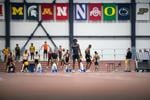
Less than two weeks after the Penn State cross country team experienced its best finish at t…

